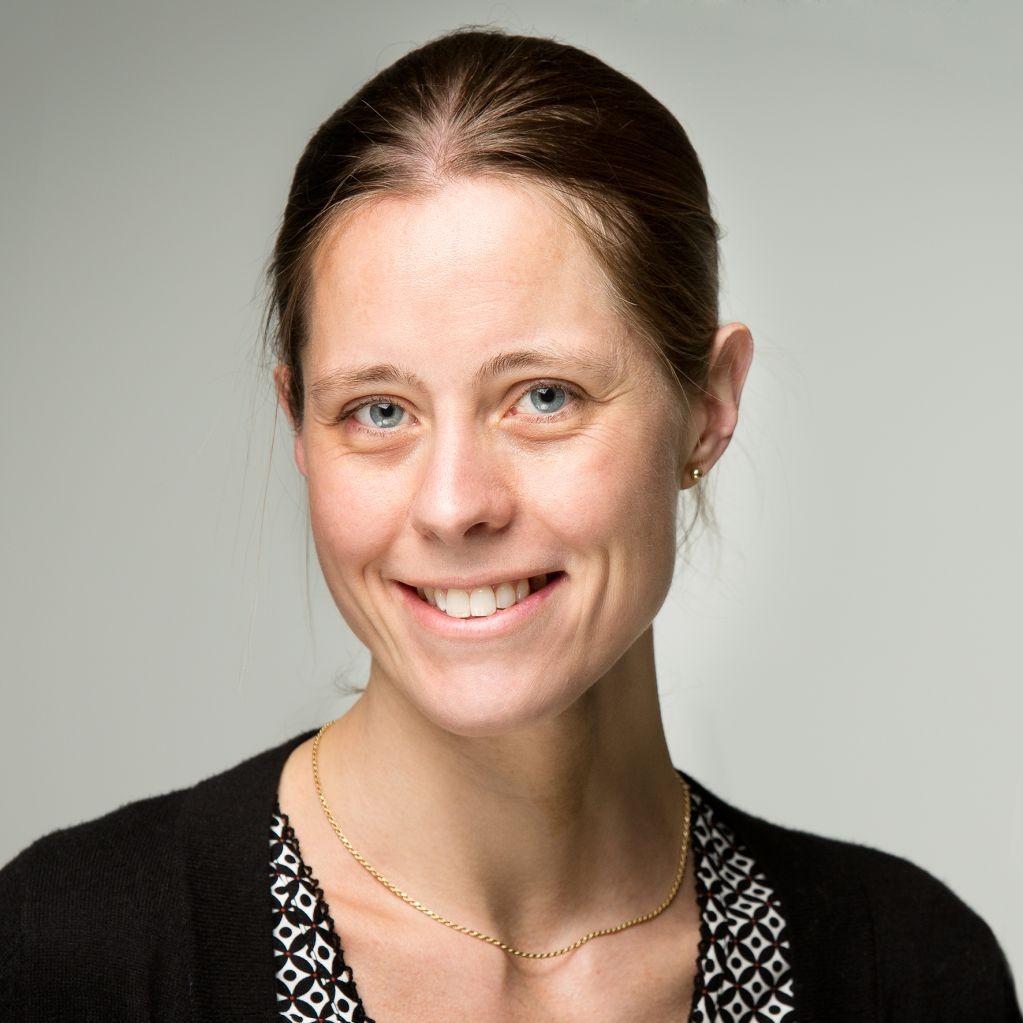Spotlight: We can efficiently eliminate unnecessary medical practices
Dr. Marthe (Margje) Haverkamp, a Dutch doctor/researcher working in the U.S. is dedicated to improving healthcare on every continent.
"Women have to help each other in crucial steps of our careers. I love to use the wisdom of women leaders in this network and offer them my insights going forward. That is most efficient if we all live in the same niche, health care."
Dr. Marthe (Margje) Haverkamp, MD, PhD, is a healthcare policy expert and health services researcher with deep knowledge of value-based healthcare, cost-reduction strategies and system improvement. Originally from Oudewater, a small town in the center of the Netherlands, she is now a U.S. resident, working in New York City.
In the Netherlands, she worked as a medical specialist in the Department of Infectious Diseases at the Leiden University Medical Center; her PhD is in immunogenetics. Dr. Haverkamp is a frontline physician leader with international and U.S. health system experience, and worked at top-tier institutions such as the National Institutes of Health, and the Harvard T.H. Chan School of Public Health to advance the efficient delivery of care at the group level. She has had many fellowships, including a Fulbright, the Harkness Fellowship in Health Care, Policy and Practice (from the Commonwealth Fund), and the Leadership Foundation Fellowship of the International Women's Forum.
Setting the path to improving lives around the world: Strong beginnings in health and life skills
Describing the inspiration for her career path, Dr. Haverkamp graciously pointed to the influence of her parents: "To begin with, my mother, a historian, is a sharp and intelligent debater. I often admired her when she refused to be outflanked in discussions by men of her generation who were typically destabilized by such determination in a woman.She came from a family of traders, and took responsibility for the economic side of my father's medical practice. I learned from her how to reason and write. She helped me develop a strong sense of righteousness and taught me to never hide my talents under a bushel. I always remember her lessons on how to be a good manager, namely by taking very good care of those in your employment, and ensuring that their motivation to work is inherent to their loyalty. My father was a family practitioner in my hometown. He was what one would refer to as a people's doctor because of the way he treated the people of Oudewater with respect and compassion. He made them happy and helped them feel better when they were sad. I realized that, if I wanted to improve lives, becoming a doctor would be the best use of my time. However, I also felt the need to dive into the world and make even bigger change. I became mesmerized with the beauty of the immune system and soon combined clinics with immunogenetic research."
Embracing the bigger picture: Healthcare governance and differing approaches across borders
Dr. Haverkamp, however, acknowledges that in science, the way to affect the day-to-day practice is long. It motivated her early in her medical career to join a policy think-tank for the Dutch government, working on overarching healthcare issues such as governance and the future of health care. A couple of years later, at Harvard, she focused on the reduction of unnecessary medical services.
Dr. Haverkamp is known as an independent thinker, and in her own projects over the years that has opened many opportunities for cross-sectional learning. "I found that two different systems can always learn from each other, even if that is not directly obvious," she explains. For example, Dr. Haverkamp urged physicians aiming to increase the quality of their work to openly include the cost of care — an issue high on the agenda of policy leaders — in their search for higher value. In addition, she found leading examples of antibiotic stewardship in the U.S. where her colleagues in the Netherlands — a country notoriously successful in the conservative use of antibiotics in humans — could learn from.
Furthermore, earlier in her career, Dr. Haverkamp published on the benefits of high-quality palliative care as was common practice in France, to a system like that in the Netherlands, where successful end-of-life care includes the possibility of euthanasia under very strict regulations.
Health in the U.S.: Innovative, diverse, and more active aging
Dr. Haverkamp likes working in the United States. "It is great that the U.S. values versatility in a person. In the Netherlands it was difficult to combine my various interests — clinics, research, and policy — but here people love it when you have such diverse skills. Whereas in the Netherlands, employees tend to stay within their professional fields, in the U.S. physicians go back and forth between government, the corporate sector, research, and the not-for-profit world. That truly creates room for cross-fertilization! Secondly, the United States is very much focused on innovation. New ideas can be tested in small pockets until proven worth it. Admittedly, that also has a flipside. Specifically in health care, we would profit tremendously from implementing things we already know will work."
Dr. Haverkamp talked enthusiastically about the successful role that solid primary care plays in the Dutch medical system. She added, with a smile, "Although you may not expect this, the Netherlands can learn a lot from the United States when it comes to primary care as well! In the United States, policymakers and physicians find preventive care and lifestyle changes hugely important. For example the United States has been very successful when it comes to smoking prevention. Also, in the United States many people remain physically active until very late in life, in sports and their careers." The Netherlands, she noted, is only recently catching up.
Strong networks: The key to supporting women in health care
The goal of the WHAMglobal Spotlight Forum is to build a global network of special interest groups of women leaders. Dr. Haverkamp talked passionately about the importance of women's networks as a way to integrate different generations of (potential) leaders. In her opinion, she added, "That counts for any network that is based on a common trait. I have experience with networks linking Dutch professionals in the U.S. Sharing a feature that you feel is important to your identity helps you trust your partner and creates a desire to help out. The difference between being a woman and having a particular nationality is that our gender gives us some extra activism: women are still not equally represented throughout the workforce, and in 2019 that has little justification in most cases. Women have to help each other in crucial steps of our careers. I love to use the wisdom of women leaders in this network and offer them my insights going forward. That is most efficient if we all live in the same niche, health care."
Women colleagues as role models for ethics
Mentors and role models play an important part in shaping the leaders we become. Dr. Haverkamp prides in having a role model in Els Borst, an MD who specialized in pediatrics with a PhD in haemato-immunology. "Borst was the Dutch Minister of Health when I attended Medical School [1996-2003]. In my career and personal life, I take her as an example. Minister Borst was someone with an enormous knowledge of facts, and a great moral compass who stood for content and made wise decisions based on the circumstances.I want to reach her level of content-based and moral authority by confronting similar healthcare issues and strategic settings that she faced in her career, and thereby make that style of leadership my own."
Reducing waste at systems level: Engage all the players
Dr. Haverkamp still looks up to her father when she thinks of the legacy she wants to leave. "Indeed, throughout his career, my father has had a lot of impact on the lives of individual patients. I loved that part of my work when I was a clinician as well. But in addition, I want to have had a significant impact on healthcare systems — that may be provider, payer, or government systems — and thereby have improved quality, access, and affordability of the care delivered. A way to do all that beautifully is by taking waste/unnecessary interventions out of those systems. I am still working hard on this."
Working in a field largely occupied by men
In one of her exciting projects on end-of-life, Dr. Haverkamp held extensive interviews with high-level thought leaders in the field. She shared some useful lessons learned, applicable to any woman leader working in an environment largely occupied by men. "I learned three important lessons that would influence my personality."
Something to prove
"First, to be taken seriously, you must know what you are talking about. Thus, by extreme preparation, I quickly overcame the French intellectuals' stereotypically paternalistic hesitations to discuss 'dying' with a young and — specifically — female student. Ever since, I come thoroughly briefed and am sincerely committed to the subject I am working on."
Keeping an open mind and learning from other countries' practices
"Second, in case of intercultural exchange, both sides can draw lessons. The series of interviews confirmed my prior conviction that the Dutch medical system was more advanced in assuring that end-of-life decisions are taken by a medical team that shares responsibility, and not weigh solely on the shoulders of a single physician. On the other hand, I found that the French medical system had a far better praxis of palliative care. Both the Netherlands and France can learn from each other's approaches, and I quickly understood the importance of an open mindset when tackling a new problem."
How research becomes practice
"Third, I found that writing scientific papers is not the best way to change standard practice. Fifteen years later, I wonder how many healthcare leaders have read my article. This made it clear to me that in my work, I need to be relevant to the greater good."
Combining skills to put research into practice and improve efficiency in health care
Consistently combining clinics with science and policy in the Netherlands, Dr. Haverkamp is now up for a new challenge in the United States.She wants to work strategically on healthcare system improvement and better care delivery, and become a thought leader in her field. "Among others, I want to help providers and payers become more efficient and further eliminate unnecessary medical practices." she says. At present, Dr. Haverkamp advises a start-up in that space.
-------------------------------------------------------------
The Spotlight Forum is an initiative of the Women's Health Activist Movement Global (WHAMglobal), a supporting organization of the Jewish Healthcare Foundation in Pittsburgh. WHAMglobal is committed to profiling members of WHAMglobal, the International Women's Forum (IWF) special interest group on health care, and Women of Impact for Healthcare. Through the Spotlight Forum, we will share members' inspiring stories and accomplishments, identify common interests, and form new partnerships that help make health care safer, higher quality, more accessible, and more compassionate.
Questions? Ideas? Want to share your story?
Contact Hanifa Nakiryowa, global health associate: nakiryowa@JHF.org

